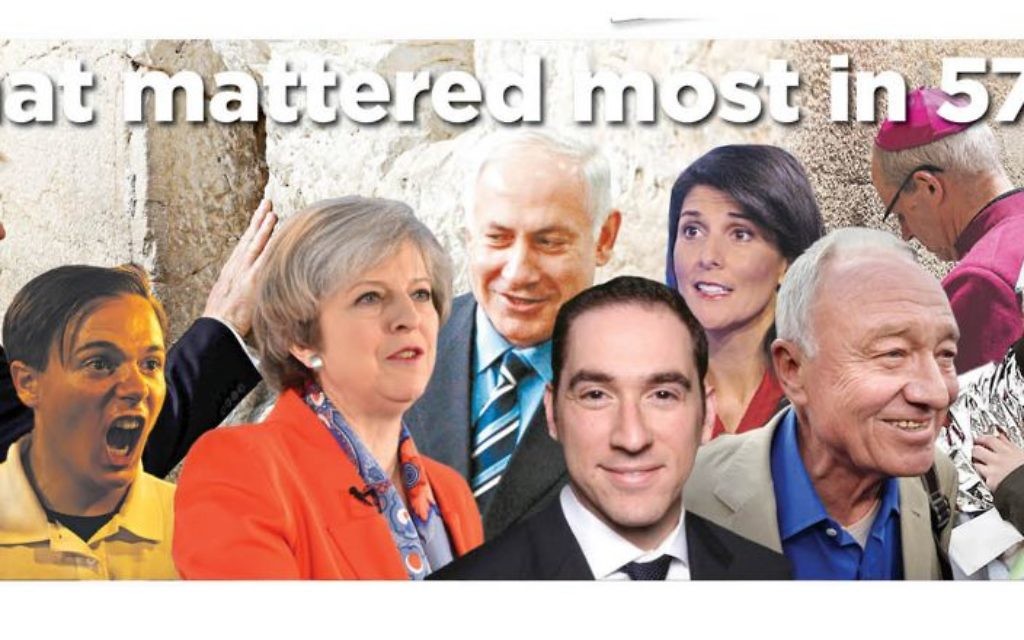Rosh Hashanah: Moments that mattered in 5777
As the year 5777 comes to a close, Jewish News looks back at the most significant moments, at home and abroad...
The Jewish year that’s past was eventful, to say the least.
From Theresa May’s snap general election and ongoing Ken Livingstone saga, to a tumultuous first eight months of Donald Trump’s US presidency, we found it hard to take our eyes off the headlines.
As the year 5777 comes to a close, Jewish News looks back at the most significant moments, at home and abroad…
Get The Jewish News Daily Edition by email and never miss our top stories Free Sign Up
Here is our top 10:
1 Terror attacks cast a shadow
This year, a number of tragic terrorist attacks took place in the UK. In March, in the Westminster attack, British-born Khalid Masood killed five people. In May, 22 people, including a number of children, were killed by suicide bomber Salman Abedi at an Ariana Grande concert in Manchester.
The following month, London was again left traumatised when three attackers killed eight people and injured 48 others in an attack at London Bridge. On 17 June, a van ploughed into worshippers outside a Finsbury Park mosque in a pre-meditated attack, killing a man and injuring another 11 people. Then, on 15 September, a home-made explosive partially exploded on a District Line train, injuring 30 people.
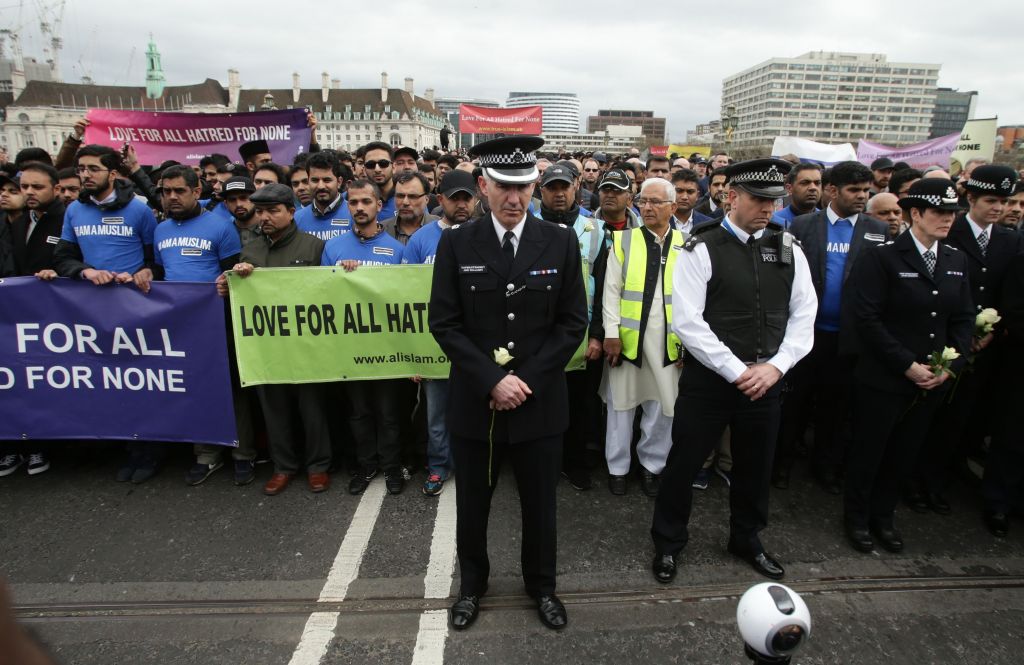
2 UN criticises Israeli settlements and the US abstains
In December, the United Nations sharply condemned Israeli actions in a resolution calling settlements “a flagrant violation of international law” that damage the prospects of a two-state solution to the Israeli-Palestinian conflict. Traditionally, the United States has vetoed such resolutions – but in its waning days, the Obama administration chose not to follow suit. This prompted outrage from Israel, centrist and right-leaning Jewish groups and then President-elect Donald Trump, who called the resolution “extremely unfair”. Samantha Power, then US envoy to the UN, defended the abstention, saying the resolution was in line with long-standing US opposition to Israeli settlements.
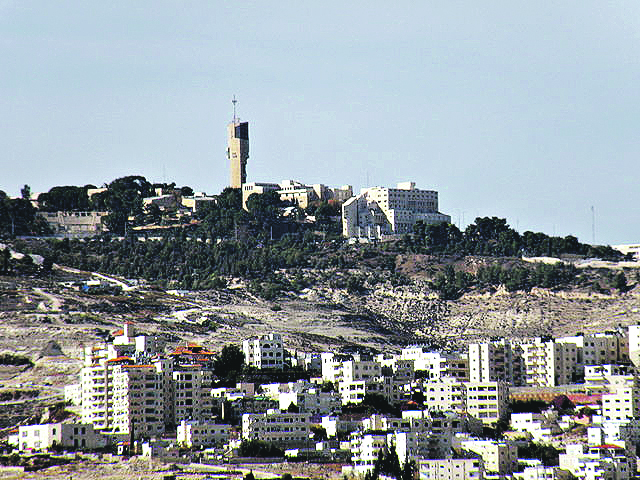
3 Trump takes office
Donald Trump took power in January, after his unexpected victory over Hillary Clinton in November, pledging in his inaugural address to put “America first”. The use of the slogan – the name of an isolationist and often anti-Semitic movement leading up to the Second World War – alarmed some Jews, but Trump said the phrase had no connection. He brought with him a cadre of Jewish advisers, including his daughter, Ivanka, and her husband, Jared Kushner. The couple, both observant Jews, would take on critical roles in the administration as his senior advisers, with Kushner in charge of a portfolio that included brokering an Israeli-Palestinian peace deal.
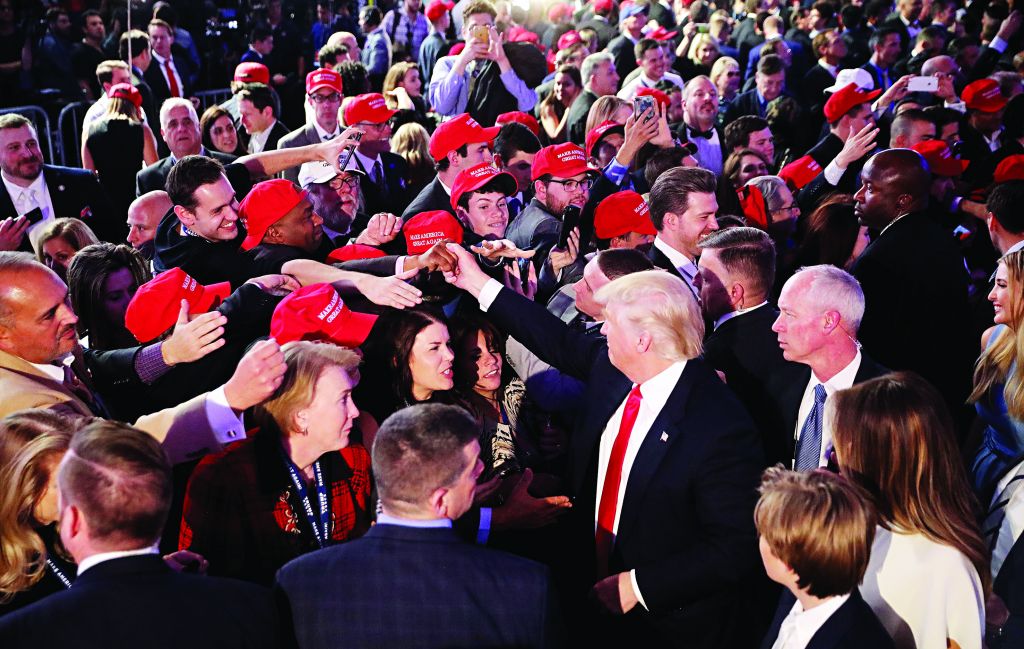
4 Trump shouts down reporters who ask him about anti-Semitism
In February, the president shouted at two journalists who asked him about an increase in anti-Jewish sentiments and incidents, and said he “hates” being called an anti-Semite, although neither reporter called him one. After asking for a “friendly” reporter, Trump interrupted a question by a Charedi Orthodox journalist, accusing him of lying about his intentions – and claimed to be the “least anti-Semitic person you have ever seen in your entire life”. Trump’s response drew criticism from Jewish groups, many of which had already criticised him a month earlier for releasing a statement on International Holocaust Remembrance Day that notably did not mention Jews. His defenders said the president’s critics were politically motivated.
5 Labour fails to expel Ken ‘Hitler supported Zionism’ Livingstone
Comments made by Ken Livingstone in 2016, in which he claimed that Hitler was a supporter of Zionism, were met by outrage from both the public and a number of Labour’s own MPs, one of whom called him a “Nazi apologist”, forcing the party to suspend the former mayor of London. In March, after Livingstone’s continued refusal to apologise for the comments, an expulsion hearing was held. Despite the comments being labelled as anti-Semitic by the Board of Deputies, the Holocaust Educational Trust and the Jewish Labour Movement, Labour failed to expel Livingstone. Instead, he was suspended from the party for a further year, keeping him sidelined until 27 April 2018. Despite more than 1,000 Jewish Labour members and supporters signing a letter to The Guardian condemning Labour’s decision not to expel him, the decision still stands.
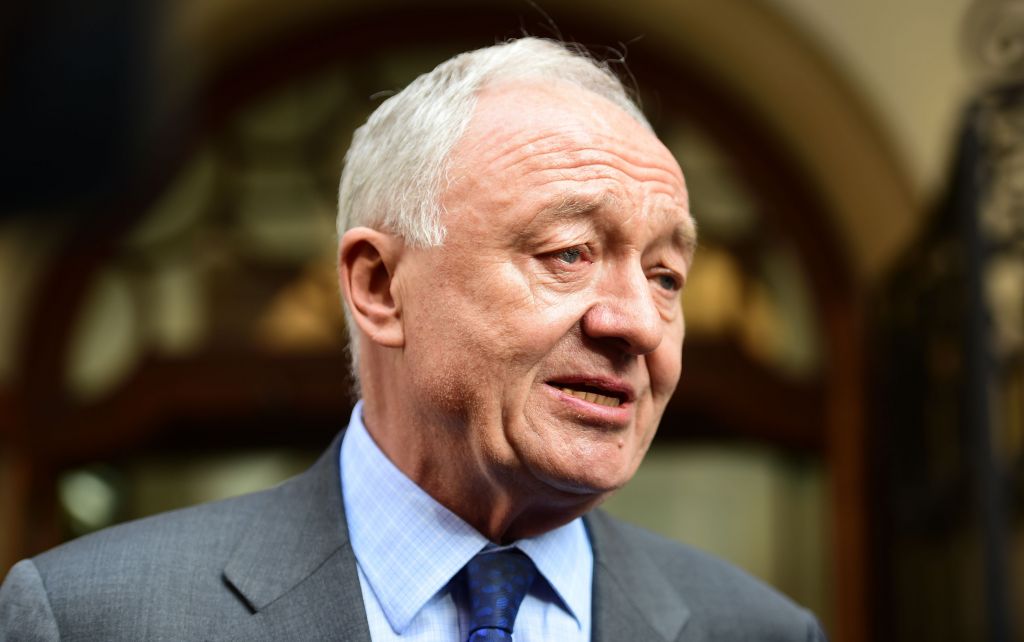
6 Trump visits Israel
The president paid a visit to the Jewish state on his first overseas trip as president in May, which also included stops in Italy and Saudi Arabia. The two-day trip included a stop at Yad Vashem and meetings with Prime Minister Benjamin Netanyahu and President Reuven Rivlin, as well as Palestinian Authority President Mahmoud Abbas. Trump, accompanied by his daughter Ivanka and her husband Jared Kushner, also stopped at the Western Wall for a private visit, making him the first sitting US president to visit the holy site and earning him high praise across Israel. A few months after the visit, Trump dispatched a team of top aides, including Kushner, Jason Greenblatt and Dina Powell, to visit Israel and other Middle Eastern countries in an attempt to revive peace talks.

Photo by: Nati Shochat-JINIPIX
7 The Rabbi Joseph Dweck saga
The head of the S&P (Spanish and Portuguese) Community sparked outrage in June after arguing Judaism allows for two men to love each other, despite its prohibition in the Torah. Strictly-Orthodox Rabbi Aaron Bassous led the charge against Dweck, branding his comments “dangerous”. Pressure was then heaped on Chief Rabbi Ephraim Mirvis, with a number of rabbis backing Bassous’ claim that if Mirvis failed to remove Dweck from his position, he would be “responsible for the splitting of Anglo-Orthodoxy”. Rather than succumbing to these demands, Mirvis shone a light on what he felt the Dweck affair truly represented – the state of Jewish identity itself. “We have come to define ourselves by that which divides us, rather than that which unites us… is this what we have become?”
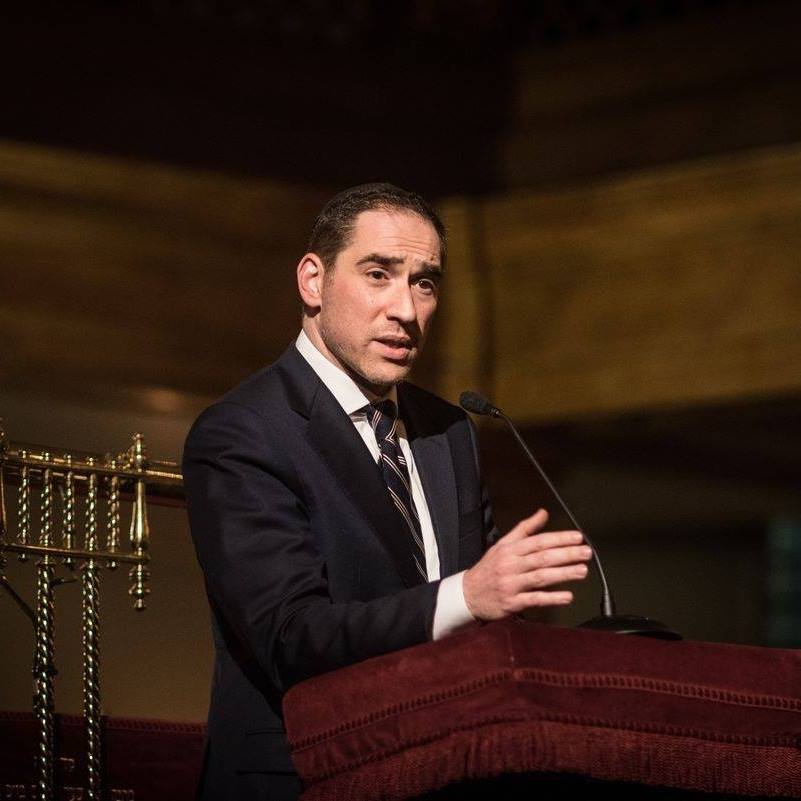
8 Israel freezes pluralistic Western Wall agreement
A June decision by Netanyahu’s Cabinet to put a hold on the creation of an egalitarian section of the Western Wall, a deal passed in 2016, drew the ire of American Jewish leaders. Some leaders, also angered by the advancement of a bill to give the Orthodox Chief Rabbinate complete control of conversions performed in Israel, warned of a growing schism between American Jews and Israel. Natan Sharansky, the chairman of the Jewish Agency for Israel, also joined critics of the decision, saying it “will make our work to bring Israel and the Jewish world closer together increasingly more difficult”. In August, the Israeli Supreme Court said the government must either reinstate the agreement or provide an explanation as to why it had put a hold on it.
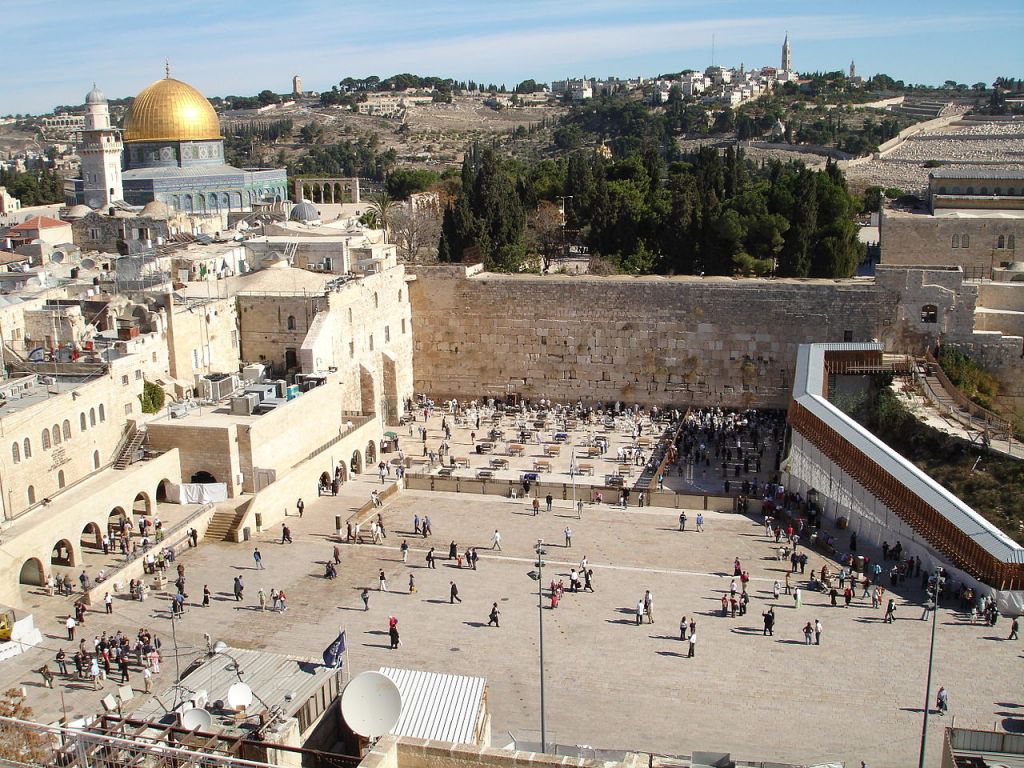
9 Theresa May’s epic election fail
The UK was shocked after Theresa May’s snap election ended in a hung parliament in June. The Labour Party, led by Jeremy Corbyn, managed to gain 40 percent of votes, news that was met fearfully by the UK’s Jewish community. Distrust in Corbyn stemmed from comments he had made two years prior to the election, when he insisted that “friends” from Hamas are dedicated to “long-term peace and and social justice”, and that Britain’s labelling of Hamas as a terrorist organisation was a “big, big historical mistake”. The community views with concern his handling of anti-Semitism in the Labour Party and the House of Commons’ Home Affairs Committee last year found that 87 percent of British Jews believe it is far too tolerant of anti-Semitism.
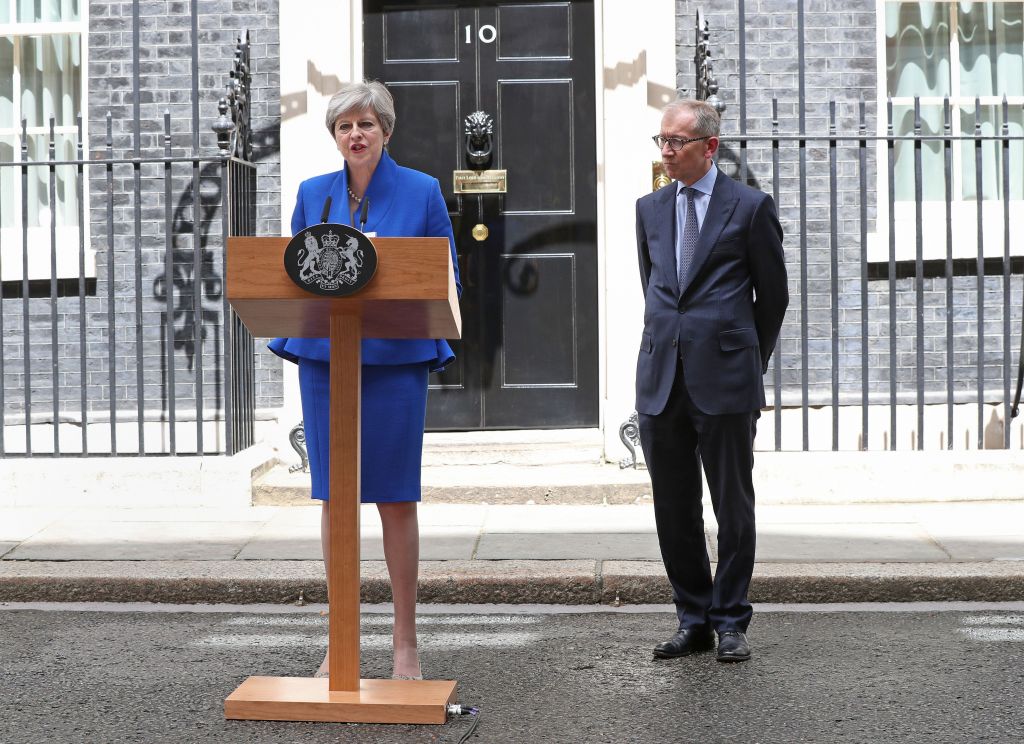
Photo credit: Jonathan Brady/PA Wire
10 Neo-Nazis rally in America
White supremacists gathered in Virginia in August to protest the removal of a statue of Confederate Gen. Robert E. Lee. The far-right protesters chanted anti-Semitic and racist slogans, including “Jews will not replace us”, and brawled with counterprotesters, one of whom, Heather Heyer, was killed when a suspected white supremacist rammed his car into a crowd. Trump condemned the protest, calling out neo-Nazis and white supremacists in one remark, but blamed both sides for the violence at other times, and said there were “some very fine people” in both groups. Jewish groups, lawmakers from both sides of the aisle and the president’s top economic adviser, Gary Cohn, criticised Trump, saying he was not doing his part to condemn hate.
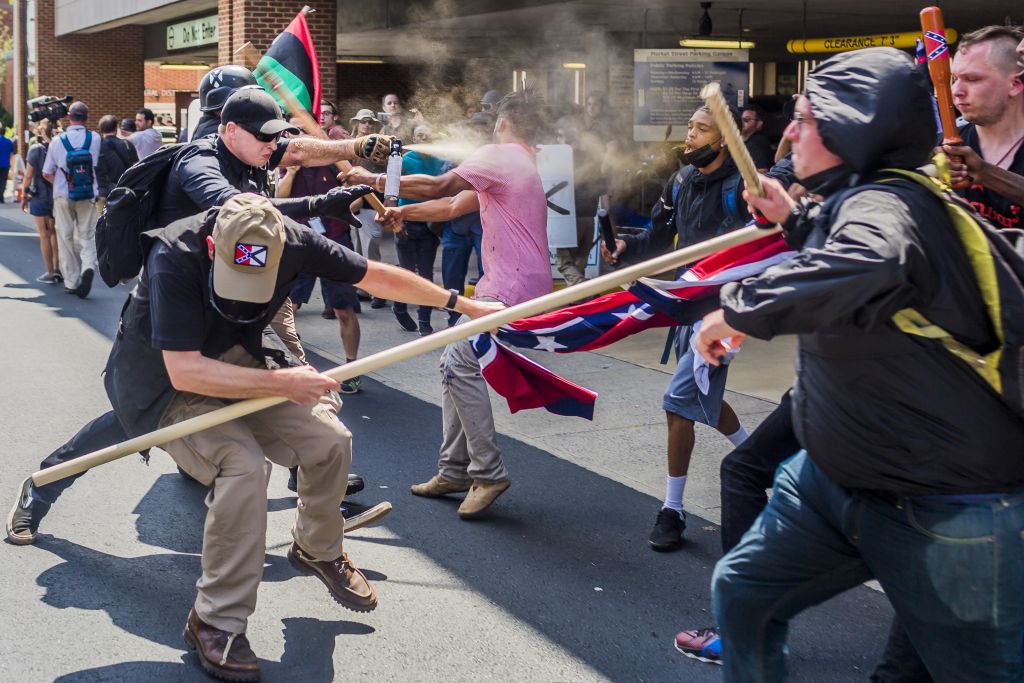

Thank you for helping to make Jewish News the leading source of news and opinion for the UK Jewish community. Today we're asking for your invaluable help to continue putting our community first in everything we do.
For as little as £5 a month you can help sustain the vital work we do in celebrating and standing up for Jewish life in Britain.
Jewish News holds our community together and keeps us connected. Like a synagogue, it’s where people turn to feel part of something bigger. It also proudly shows the rest of Britain the vibrancy and rich culture of modern Jewish life.
You can make a quick and easy one-off or monthly contribution of £5, £10, £20 or any other sum you’re comfortable with.
100% of your donation will help us continue celebrating our community, in all its dynamic diversity...
Engaging
Being a community platform means so much more than producing a newspaper and website. One of our proudest roles is media partnering with our invaluable charities to amplify the outstanding work they do to help us all.
Celebrating
There’s no shortage of oys in the world but Jewish News takes every opportunity to celebrate the joys too, through projects like Night of Heroes, 40 Under 40 and other compelling countdowns that make the community kvell with pride.
Pioneering
In the first collaboration between media outlets from different faiths, Jewish News worked with British Muslim TV and Church Times to produce a list of young activists leading the way on interfaith understanding.
Campaigning
Royal Mail issued a stamp honouring Holocaust hero Sir Nicholas Winton after a Jewish News campaign attracted more than 100,000 backers. Jewish Newsalso produces special editions of the paper highlighting pressing issues including mental health and Holocaust remembrance.
Easy access
In an age when news is readily accessible, Jewish News provides high-quality content free online and offline, removing any financial barriers to connecting people.
Voice of our community to wider society
The Jewish News team regularly appears on TV, radio and on the pages of the national press to comment on stories about the Jewish community. Easy access to the paper on the streets of London also means Jewish News provides an invaluable window into the community for the country at large.
We hope you agree all this is worth preserving.
-
By Laurent Vaughan - Senior Associate (Bishop & Sewell Solicitors)
-
By Laurent Vaughan - Senior Associate (Bishop & Sewell Solicitors)
-
By Laurent Vaughan - Senior Associate (Bishop & Sewell Solicitors)
-
By Laurent Vaughan - Senior Associate (Bishop & Sewell Solicitors)


